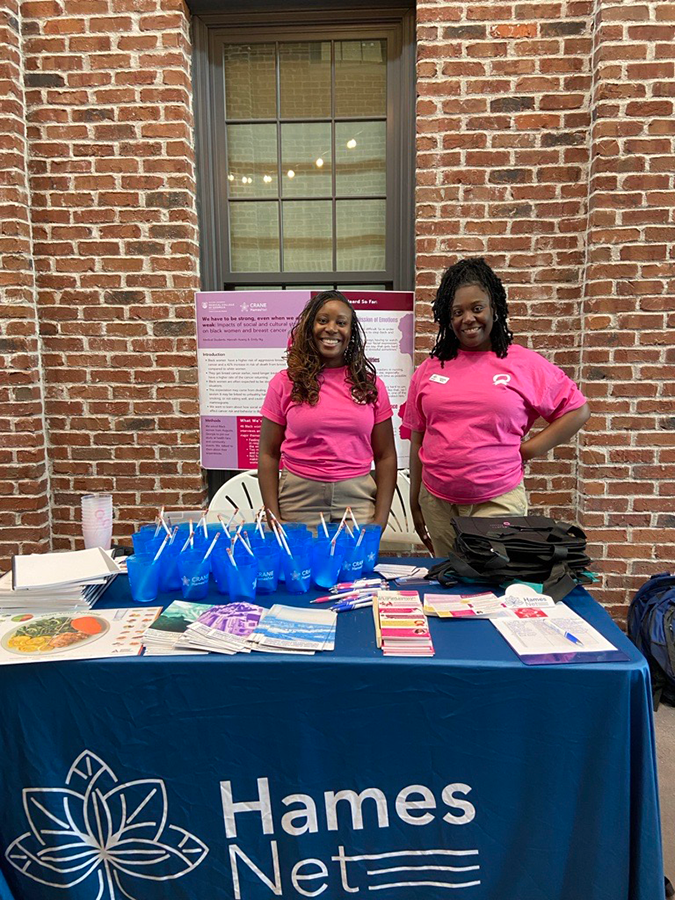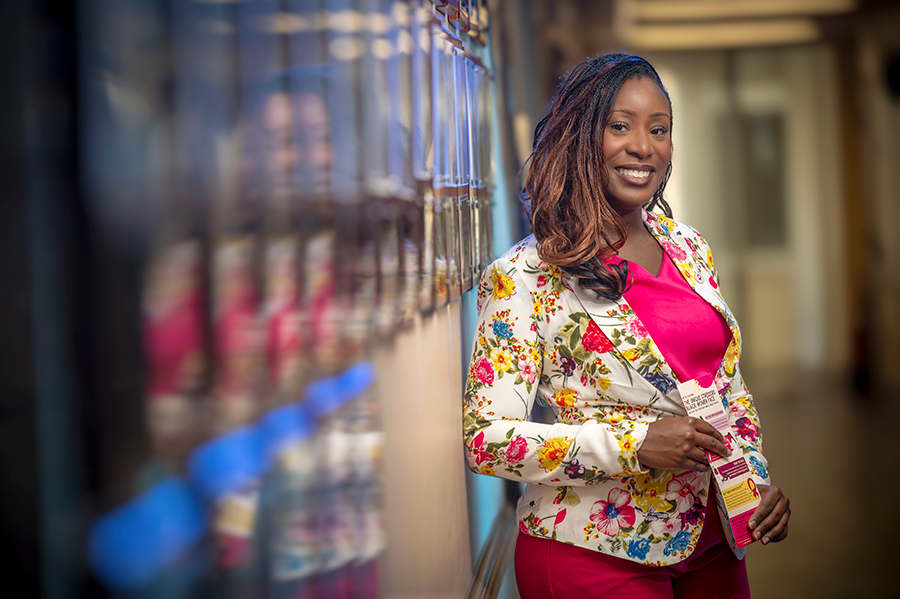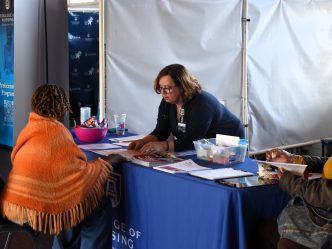Samantha Jones, PhD, an assistant professor in the Department of Family and Community Medicine at Augusta University’s Medical College of Georgia, has dedicated her career to understanding health disparities. Her current research focuses on understanding the impact of identity-based stressors on the prevalence of triple-negative breast cancer in Black women.
“If you’re diagnosed with triple-negative breast cancer, it’s going to progress faster,” Jones said. “It’s going to be rougher. You’re going to have more aggressive treatment, and to know that Black women are diagnosed with this 81% more often than other racial or ethnic groups was interesting.”
Jones’ research examines the link between the stress Black women experience and how it relates to poorer health outcomes, focusing on factors such as epigenetic modifications, telomere shortening and allostatic load.
A turning point in her research came from a conversation with a sorority sister who was facing stage four metastatic breast cancer.
“I just started asking her questions like how is your mental health? How have you been eating? Have you been working out?” Jones said.
Her sorority sister shared that her concerns were dismissed by her provider, who told her any changes in health and behavior would be “too late.” This interaction pushed her to focus on research that highlights the real-world impact on women in her community.
“In public health, we look at big numbers, but it’s different when you meet someone who is going through the situation in real life,” Jones said. “I saw there is a group with really poor health outcomes, so I decided to look at what is going on socially to see if there’s any connection.”

attended the “Back to School at The Hub” to share
more about their research.
Jones found that many Black women feel unable to prioritize their mental health due to pressures from society, family and work.
“It is reinforced that you come last,” she explained. “Whatever is stressing you, put that on the backburner and keep working to provide and succeed. Your mental and physical health is not a priority. If you are constantly saying ‘I’m okay,’ ‘I’m fine,’ ‘nothing’s wrong,’ and you go to a physician and nobody ever listens to you, then you kind of get used to it,” she noted.
Her work explores the idea of self-schema—the internalized persona shaped by societal influences. Jones and her team engage in community events, meeting with Black women and their families to educate and recruit for her study.
In addition to stigma and socioeconomic status, Black women face dismissive and biased healthcare providers.
“Women are attracted to our materials because they feel like nobody’s talking about stress among Black women,” Jones said. “They feel like there’s this huge elephant in the room. Health outcomes for Black women are only going to get worse, and not better, if we don’t start addressing the situation.
“Bias and microaggressions are more than just hurting someone’s feelings,” she continued. “There is evidence that bias is damaging us as a society and preventing us from advancing forward.”
Through this research, Jones hopes to develop interventions that seek to educate and empower communities to protect themselves from disease and live longer, healthier lives. This study is ongoing and actively recruiting Black women aged 18-49 who have not had a breast cancer diagnosis or are in remission.
Discoveries at Augusta University are changing and improving the lives of people in Georgia and beyond. Your partnership and support are invaluable as we work to expand our impact.
 Augusta University
Augusta University




